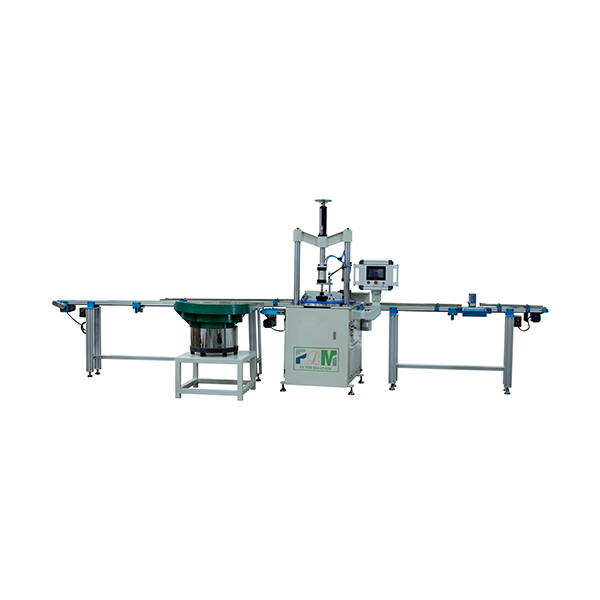Aug . 04, 2024 02:32 Back to list
Supplier of High-Quality Sintered Porous Metal Filter Tubes and Custom-Crafted Filter Cups
The Rise of Sintered Porous Metal Filter Tube Cups A Revolution in Filtration Technology
In recent years, the demand for high-performance filtration solutions has surged across various industries, ranging from pharmaceuticals to food processing. One innovation that has garnered significant attention is the sintered porous metal filter tube cup. This advanced filtration technology is poised to revolutionize how businesses approach fluid filtration, and its manufacturers are at the forefront of this transformation.
Understanding Sintered Porous Metal Filters
Sintered porous metal filters are created through a process where metal powders are heated just below their melting point and then compacted to form a rigid structure. This process results in a filter that is not only strong and durable but also porous, allowing for effective fluid flow while trapping unwanted particles. The unique attributes of these metal filters make them ideal for applications that require high-temperature tolerance, corrosion resistance, and easy cleaning, all of which are crucial in many industrial processes.
The porous nature of sintered metal filters enables them to achieve a wide range of pore sizes, providing flexibility in filtration applications. Whether it involves removing larger particulates from liquids or filtering finer particles from gases, manufacturers can customize the filters to meet specific client needs.
Applications Across Industries
Sintered porous metal filter tube cups are extensively utilized across several industries. In the pharmaceutical industry, for instance, maintaining the purity of fluids is paramount. Sintered filters help ensure that any contaminants are effectively removed, thereby safeguarding product integrity. In food processing, the filters assist in separating solids from liquids, ensuring a clean and safe end product.
Moreover, in the oil and gas sector, these filters are used to prevent sediment and impurities from contaminating fuels and lubricants, thereby enhancing machinery lifespan and efficiency. The automotive and aerospace industries also benefit from these filters, where they are applied in fuel systems, hydraulic systems, and other crucial components that require reliable filtration under demanding conditions.
sintered porous metal filter tube cup manufacturer

Advantages of Sintered Filters
One of the primary benefits of sintered porous metal filters is their longevity. Unlike traditional filters which may need frequent replacements, sintered filters can often be cleaned and reused multiple times. This not only reduces operational costs but also contributes to sustainability efforts, as fewer filters means less waste.
Additionally, the ability to withstand extreme temperatures and pressures makes sintered filters particularly suitable for specialized applications where traditional filters may fail. The robust construction ensures that these filters maintain their structural integrity, even when exposed to harsh chemicals or high-stress environments.
Customization and Innovation
As industries continue to evolve, so do the needs for filtration solutions. Manufacturers of sintered porous metal filters are increasingly focusing on customization to cater to specific industry requirements. Innovations in manufacturing techniques have led to the development of filters that offer enhanced performance characteristics, such as increased flow rates and superior filtering efficiency.
Moreover, as technology progresses, the integration of sensors and IoT solutions in filtration systems is becoming more prevalent. This allows for real-time monitoring and optimization of the filtration process, helping businesses to improve operational efficiency and product quality.
Conclusion
The sintered porous metal filter tube cup represents a significant advancement in filtration technology, offering durability, efficiency, and versatility across various applications. As more industries recognize the advantages of this innovative filtration solution, its manufacturers continue to drive research and development to meet evolving market demands. This trend promises to enhance operational efficiencies while fostering sustainable practices, positioning sintered porous metal filters as a cornerstone in modern filtration systems.
-
PLAB-6 A B Two Compounds Filter End Cap Gluing Machine - Hebei Filter Man
NewsAug.17,2025
-
PLAB-6 A B Two Compounds Filter End Cap Gluing Machine-Hebei Filter Man|Precision Gluing, Efficient Manufacturing
NewsAug.17,2025
-
PLAB-6 A B Two Compounds Filter Gluing Machine - Hebei Filter Man
NewsAug.17,2025
-
PLAB-6 A B Two Compounds Filter End Cap Gluing Machine-Hebei Filter Man Automotive Parts Trading Co., Ltd|Precision Gluing&Industrial Automation
NewsAug.17,2025
-
Active Carbon Air Filter for Air Purifier - Odor & VOC Removal
NewsAug.17,2025
-
PLAB-6 A B Two Compounds Filter Gluing Machine-Hebei Filter Man|Precision Automation,Customizable Settings
NewsAug.16,2025
